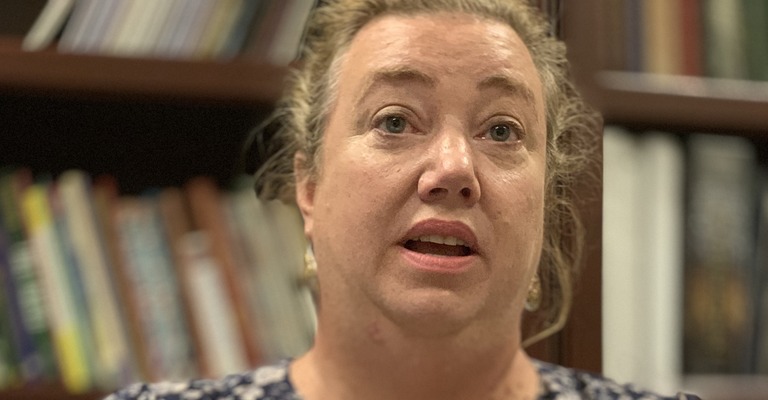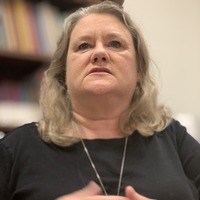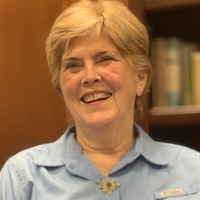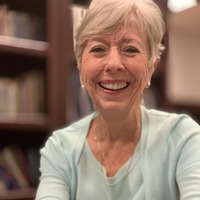
A platform that encourages healthy conversation, spiritual support, growth and fellowship

NOLACatholic Parenting Podcast
A natural progression of our weekly column in the Clarion Herald and blog

The best in Catholic news and inspiration - wherever you are!
Being pro-life much more than being ‘pro-baby’
-

By Peter Finney Jr.
Clarion Herald
A common but tired criticism of the pro-life movement over the last half-century has been that its passion for saving the lives of unborn babies has not been matched by its commitment to helping the lives of mothers after they give birth.But when New Life – which became ACCESS and is now known as Catholic Charities Pregnancy and Adoption Services – was established in 1971 by Archbishop Philip Hannan two years before the Roe v. Wade decision, it put the concerns of women front and center, said Michelle Black, director of the agency that will celebrate its pandemic-belated 50th anniversary with a gala Sept. 15.
And, especially with the historic reversal of Roe in June, that commitment to mothers is stronger than ever as U.S. bishops are urging Catholic parishes across the country to join “Walking with Moms in Need” by providing a vast array of post-birth support, Black said.
Pro-family support
“We’ve always heard the criticism from people who are not life-minded who say we’re all about wanting people to have the baby, but what do we do to support the baby after the baby’s born?” Black said. “That’s what we’re doing. We want to support people throughout.”
In addition to providing women with free pregnancy testing, ultrasounds, diapers, baby supplies, layettes and strollers, Catholic Charities enrolls income-qualified women in Medicaid, through which they can receive prenatal care and other post-birth medical services. About 95% of its clients qualify for Medicaid, and the paperwork can be filled out and activated quickly, usually within two days.
In addition, Catholic Charities offers free counseling to women during pregnancy and after they give birth.
Follow-up manifests care
It also reaches out to women who have come into the office for an appointment but later decided to have an abortion, Black said. She and her counselor, Danna Cousins, regularly make follow-up calls to women who visited the office when they were pregnant but didn’t come back.
“We had a woman recently who was abortion-minded, and she left undecided after her appointment,” Black said. “I called her (the woman had given her permission to receive a follow-up call), and she had had an abortion. She told me, ‘It’s been two weeks, and I’ve cried every day.’ She was not unscathed. She didn’t just walk away and go about her life.
“She needed help, and the abortion facilities are not helping. They’re just saying, ‘This is no big deal.’ It’s places like us and other pregnancy centers that are trying to help people pick up the pieces and move on. ”
The woman is now going through post-abortion counseling.
 “We don’t just write people off,” said Lynn Schonberg, Respect Life co-coordinator for the archdiocese. “We are Christians and this is what we do. We take care of women in whatever capacity they need. How many abortion clinics are following up and making phone calls to the women they’ve seen?”
“We don’t just write people off,” said Lynn Schonberg, Respect Life co-coordinator for the archdiocese. “We are Christians and this is what we do. We take care of women in whatever capacity they need. How many abortion clinics are following up and making phone calls to the women they’ve seen?”
Sharon Rodi, one of the earliest archdiocesan volunteers with New Life in the early 1970s, said when she began holding down shifts in the original office on Camp Street, the standing rule for volunteers, most of whom were young mothers who watched each other’s children on rotating schedules, was to be helpful and nonjudgmental.
Strong volunteer base In those days, New Life had a core of about 80 volunteers, including longtime advocate Karen McGoey. The women raised money through garage sales and galas.
In those days, New Life had a core of about 80 volunteers, including longtime advocate Karen McGoey. The women raised money through garage sales and galas.“Our purpose was never just to save babies,” Rodi said. “Our purpose has always been to help women when they are pregnant and to help women after. When we have counseled them, we’ve told them, regardless of what your decision is, we are here for you and you can come back to us. We are not going to judge you. It’s never been just babies we’ve been concerned with.”
In the mid-1970s after Roe codified abortion on demand, the New Life ministry offered free counseling and pregnancy testing five days a week. The free pregnancy tests were a big deal, Rodi said, because in those days, women normally had to set up an appointment with their doctor to find out if they were pregnant, which could be costly. It also meant they could be giving up their privacy.
New Life also realized that a woman in crisis might need help after business hours. The agency developed a call-forwarding system, with volunteers taking turns at night answering the calls at their homes.
Phone-call delivery
Patricia Schonberg, Lynn Schonberg’s mother-in-law, worked as a regular hotline operator,. She recalled receiving a nighttime call in 1976 from a woman who was home alone and was going into labor.“She didn’t want to go into the hospital because one of her relatives had died in the hospital,” Schonberg said. “So, I tried to encourage her. I offered to pick her up and take her, but she wouldn’t go.”
With the woman’s contractions coming more rapidly, Schonberg sent her daughter next door to call her own obstetrician for recommendations on what to tell the woman about how to deliver a baby by herself.
“After a little bit she said, ‘I think the baby’s coming, so I’m going to hang up and I’ll call you back,’” Schonberg said. “So, I waited and I waited. It might have been a half hour. She did finally call me back, and she said she had a baby girl, and she was going to name her Patricia after me.”
The agency distributes more than 100,000 diapers annually and is one of the largest diaper banks in the Southeast. The Junior League provides about 40% of the diaper supply, and the rest are supplied by churches, schools and individuals. Parish and school baby bottle drives to raise money for baby supplies have begun to revive after the pandemic.
Every phone call is precious
Every call to the pregnancy center is an opportunity to help a woman in crisis, Black said. Sometimes women will call the agency thinking they are speaking to someone who will give them a referral for abortion. Those calls have increased since the reversal of Roe.“We’ve had more pregnancy tests and ultrasounds lately than we’ve (usually) had,” Black said. “I can only attribute it to that. People are asking for referrals for abortion, and we’re telling them what we can offer, which is not a referral for abortion. We’re very up front about what we can help them with.”
Abortion leaves its scars
As someone who works in the crisis pregnancy field and deals with women who have had abortions, Black rebuts the assertion that abortion is a societal good for women.“The ones who are shouting out and proud of their abortions are not the clients that we regularly see,” Black said. “Most people regret their abortions. Most people have to deal with some sort of aftermath after they have an abortion. That’s why we have Rachel’s Vineyard, which is a retreat.
“Those women are usually closer to eight or 10 years post-abortive, and they’ve been struggling with it. Sometimes they have substance abuse issues. Sometimes they’re dealing with suicide attempts or mental health issues. I can see, as a woman, that abortion is not good for women. That’s not how women like us are wired.”
Maria Sotomayor, director of social outreach and community services with Divine Mercy Parish in Kenner, said her parish established a “Walking with Moms in Need” pilot ministry in July 2021. The results have been phenomenal.
The parish has compiled a list of community resources for pregnant women on its website (www.divinemercyparish.org).
“We began doing a one-on-one ministry with parents because we didn’t want to limit it to just moms,” Sotomayor said. “We’ve tried to establish an emotional and spiritual bond by actually stepping out and talking to them.”
Sotomayor said of the initial group of women who have been helped, about half are already Divine Mercy parishioners.
“The other half are moms who were just in need for things like diapers or just needed to vent,” she said. “It’s always good to have someone that you can trust and relate to to talk to, because parenting has its ups and downs.”
The parish collected 10,000 diapers for the Catholic Charities diaper bank during a three-week “Fill the Crib” drive.
“It was awesome,” Sotomayor said. “We put a crib in like a nursery in the narthex of the church, and it was nice to see it fill up. Every day we could see another box of love. That’s that’s the most beautiful thing.”




